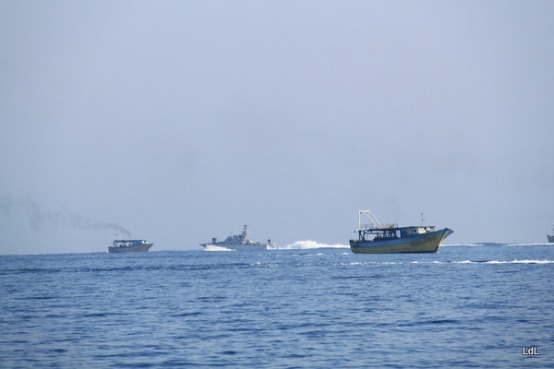Tag: Freedom of movement
-
A day at sea with Gaza’s fishermen
by Lydia de Leeuw 26 November 2011 | A Second Glance
-
A land divided: Gate closures for Salim’s olive harvest by IOF
3 October 2011 | International Solidarity Movement, West Bank As Palestinians in Salim began the first day of their annual olive harvest this morning, October 2nd, Israeli Occupation Forces locked the gate which gives those living in Salim access to their olive trees. The gate was unlocked at 7:00am to allow farmers to reach their…
-
Twilight zone / An organic bond
16 September 2011 | Haaretz This is a bad story with a happy ending. It’s also a story that makes one happy, but still leaves a bit of a bitter taste in one’s mouth. It’s the story of a Palestinian baby girl who was born during a period of unrelenting siege and curfew in her…


